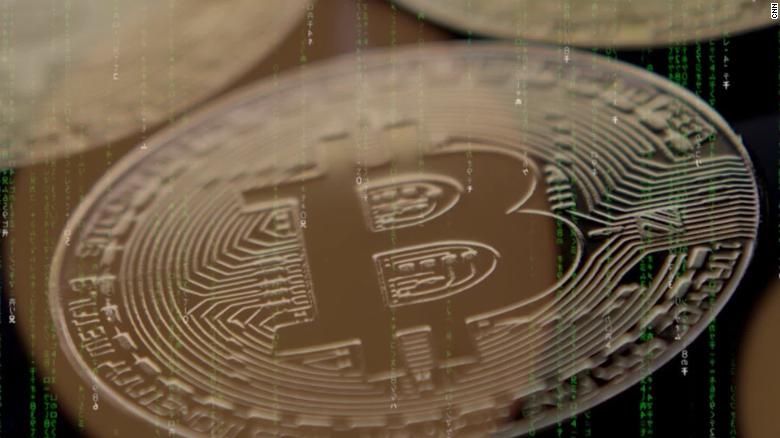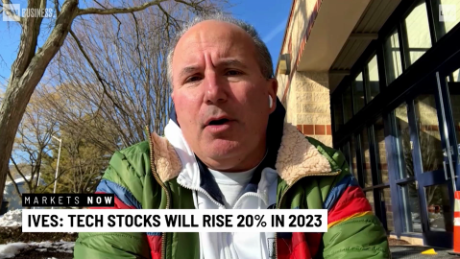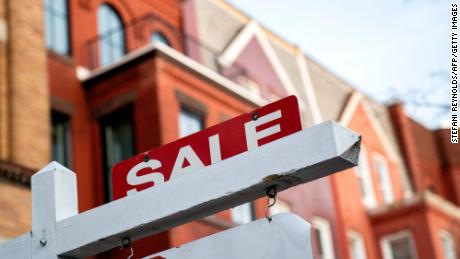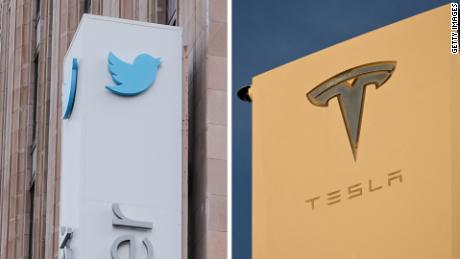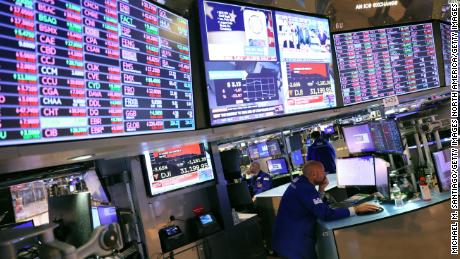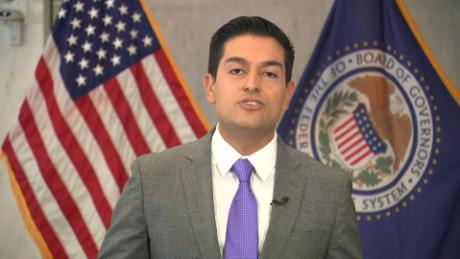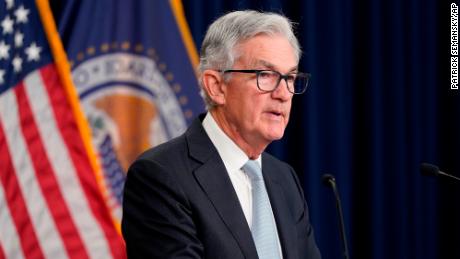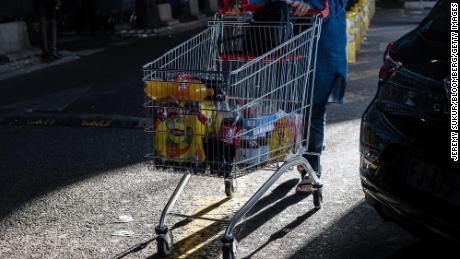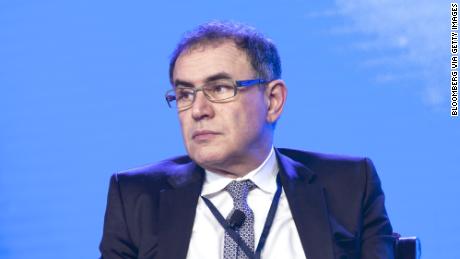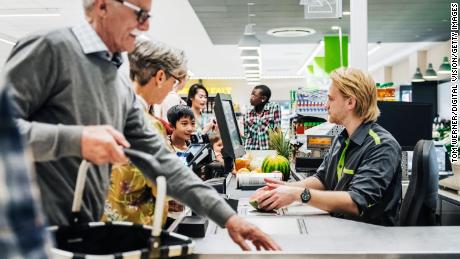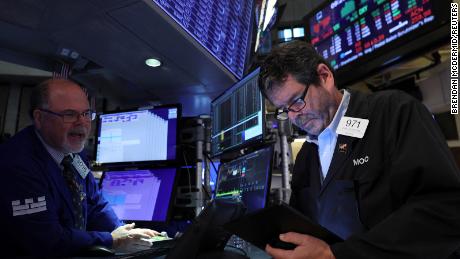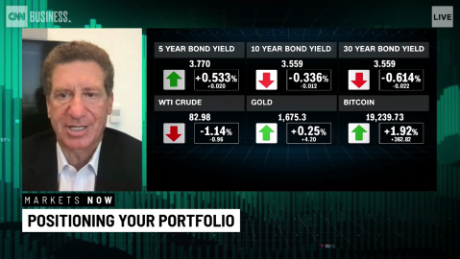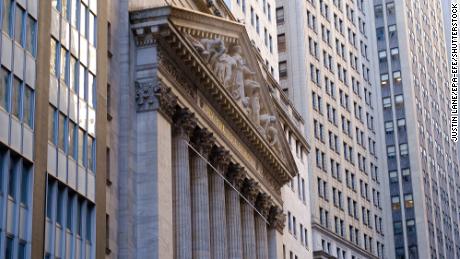A version of this story first appeared in CNN Business' Before the Bell newsletter. Not a subscriber? You can sign up right here.
London (CNN Business)Tesla's decision to invest in Bitcoin has sent prices to a record high. But it's not the only catalyst driving the cryptocurrency's rapid ascent.
What's happening: Bitcoin leaped above $48,000 for the first time ever after Tesla (TSLA) said Monday that it would soon accept Bitcoin as payment for its vehicles. The electric carmaker, led by crypto enthusiast Elon Musk, also disclosed that it's holding $1.5 billion of reserve cash in Bitcoin rather than traditional currency.
The move indicates that cryptocurrencies are starting to go mainstream in Corporate America after years of skepticism. It's one thing for Musk to identify as a "supporter of Bitcoin." It's another for Tesla, a S&P 500 company, to accept direct Bitcoin payments and make a sizable investment.
"Tesla ... has de-risked the acquisition of #bitcoin by public companies and accelerated the digital transformation of corporate balance sheets," tweeted MicroStrategy CEO Michael Saylor, a Bitcoin advocate. "Treasurers are now thinking about how to convert a non-performing asset into the best performing asset."
Even before Musk's move, there were signs that Bitcoin was gaining traction among those who had shunned cryptocurrencies due to their extreme volatility.
Grayscale Investments, the world's largest digital currency asset manager, has said that an explosion of interest from institutional investors helped drive assets under management above $20 billion by the end of 2020. It managed just $2 billion at the start of last year.
In a recent interview, CEO Michael Sonnenshein told me that Grayscale is no longer just fielding interest from family offices and hedge funds. Endowments and pension funds (primarily outside the United States) are also looking to build cryptocurrency exposure.
"It's really about recognizing the benefits of owning Bitcoin," Sonnenshein said. "There's certainly the diversification angle."
In an era where central banks are printing a seemingly endless stream of money, investors are drawn to the "verifiable scarcity" of Bitcoin, he noted. Bitcoin is designed so the total number of coins that will ever be issued is 21 million, bolstering the case for those who view it as a "digital gold."
Not everyone is ready to take the leap. Deepak Puri, Americas chief investment officer at Deutsche Bank Wealth Management, told me that he's hearing "a lot more talk from clients" eyeing Bitcoin. But the wealth management team was not actively advocating for crypto investments as of late January.
Watch this space: There's plenty of chatter that the rapid spike in Bitcoin prices will lead to a painful correction. But Sonnenshein said Grayscale's clients are mostly making long-term plays, and don't get too worked up over short-term moves.
"When you see days [with] Bitcoin dropping 10% ... we're not fielding calls and emails from investors panicking," he said. "We're seeing investors opportunistically using those drawdowns in price to add to their positions."
Big picture: Tesla isn't the only Bitcoin bull in town these days. And if the trend holds, more could join the frenzy in the weeks and months to come.
Hedge fund manager: US stocks are in a bubble
The V-shaped recovery in the stock market is gathering serious momentum.
The S&P 500 is now 75% higher than its low point last March. The Nasdaq has more than doubled since its pandemic low. Tesla shares are up a staggering 1,095% over that span. And an army of traders on Reddit were able to send GameStop to the moon, at least for a few days.
Although there's good reason for optimism about the economy and the pandemic, some fear the market euphoria is getting out of hand, though it's impossible to time when the bubble could burst.
"I do think we are in a bubble like we were in 2000," veteran hedge fund manager Mark Yusko told my CNN Business colleague Matt Egan. "That doesn't mean that tomorrow the market is going to crash."
Yusko, the CEO of Morgan Creek Capital Management, pointed to signs of extreme market speculation, such as the 1,625% spike for GameStop in January.
"Equity markets broadly are in bubble territory. Look at the parabolic moves by a number of companies like Tesla," he said.
Yusko also noted that Apple's annual net income has barely budged over the past five years. But per-share earnings, which drive share prices, have climbed sharply because the iPhone maker has aggressively repurchased its shares.
"That's just financial engineering," he said.
Still, Yusko acknowledged that overheated markets can get much hotter before finally cooling off.
"The challenge with extreme valuations is they can go on longer than you think," he said.
Main Street banks are doing better than Wall Street firms
Looking for good news? Here's some: Shares of regional banks are thriving, a sign that the economy is rebounding and average Americans are finally expected to benefit.
Those small financial firms make most of their money from taking deposits and issuing mortgages and small business loans, my CNN Business colleague Paul R. La Monica reports. That's different from big Wall Street banks, which do significant business in stock and bond trading and in advising companies on mergers and public offerings.
The latest: The SPDR S&P Regional Banking ETF is up nearly 16% so far this year, compared to a gain of 6% for the broader Financial Select Sector SPDR ETF. The latter has JPMorgan Chase, BlackRock, Goldman Sachs, Bank of America and Morgan Stanley as some of its top holdings.
The regional banking fund owns firms that more everyday consumers are likely to interact with, such as First Republic, Regions Financial, M&T Bank and Huntington Bancshares.
"The regional banks are closer to Main Street," said Donald Calcagni, chief investment officer with Mercer Advisors. "You could argue that they have their thumb on the pulse of the real economy more than the ivory tower types on Wall Street."
Many of the top regional banks have been benefiting from the explosive demand for housing. The mortgage boom should continue as long as interest rates remain low. The stock bump also communicates faith that consumers will soon be looking to take out more loans to buy cars or spend more with credit cards.
"Most people are thinking that on the other side of Covid ŌĆö whenever that is ŌĆö there will be pent-up demand for growth," said Richard Schaberg, head of the US financial institutions group at law firm Hogan Lovells.


